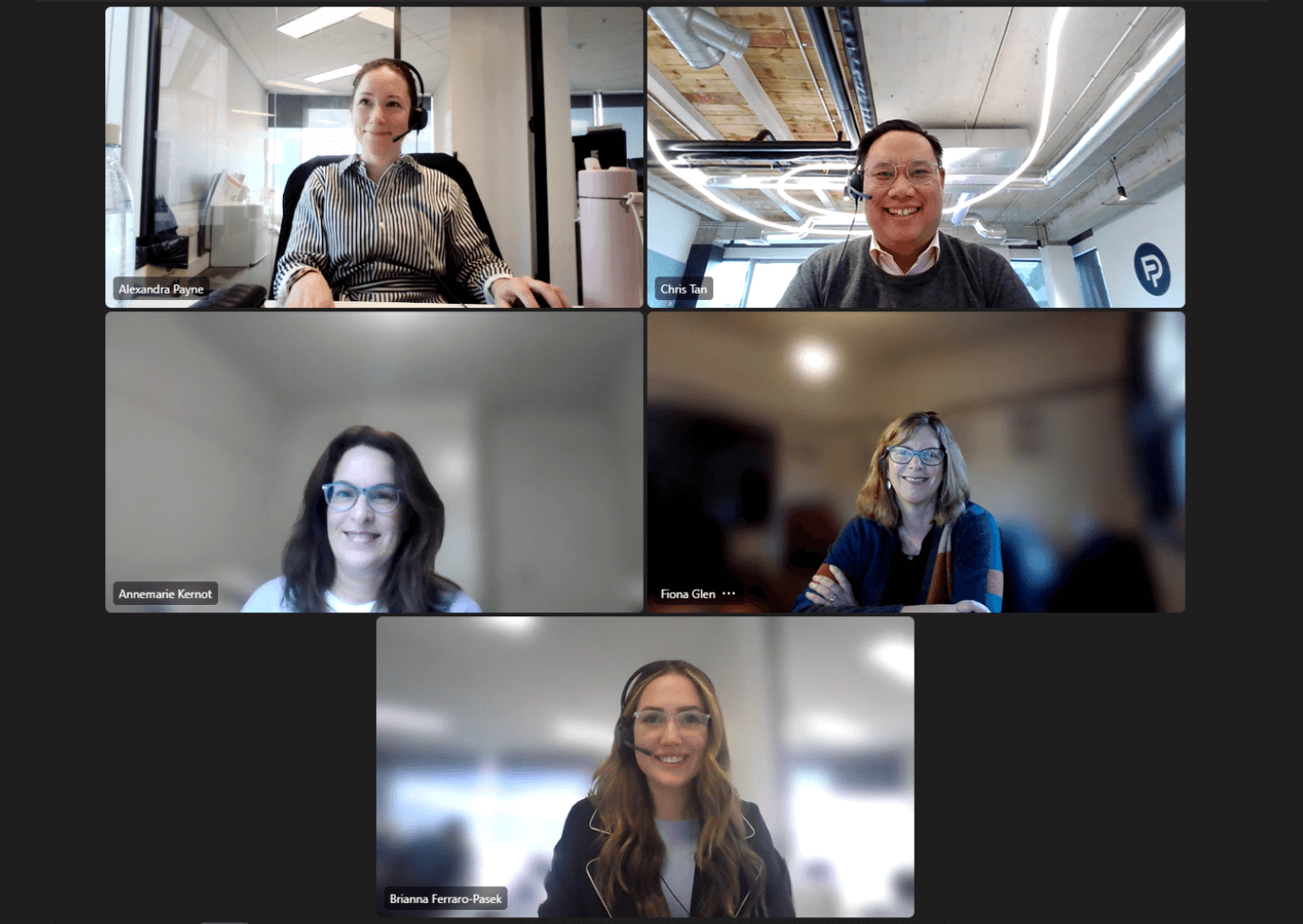
Can you give us an overview of your legal team at FleetPartners and how it supports the organisation across New Zealand and Australia?
FleetPartners Group is an ASX-listed provider of vehicle leasing and fleet management services across Australia and New Zealand. It provides salary packaging and novated leasing in Australia.
We have a tightknit legal and compliance team of five located across our primary corporate offices in Melbourne (Annemarie Kernot - Chief Legal Officer, Fiona Glen – Senior Legal Counsel), Sydney (Ally Payne – Senior Legal Counsel, Brianna Ferraro-Pasek – Paralegal) and Auckland (Chris Tan - Head of Legal - NZ).
We provide legal advice and support to all our business units ranging from Customer, Operations and Risk, to Treasury and Finance across a broad range of areas such as commercial contracts, strategic projects, corporate governance, financing arrangements, dispute resolution and intellectual property. We are also responsible for the Group’s company secretarial function, corporate insurance portfolio, compliance programme and associated training.
What do you see as the key challenges facing a geographically distributed legal team, and how do you plan to address these?
We are fortunate to have avoided any major challenges with being geographically distributed. I may be a touch biased, but we have amazing and experienced team members with a collective ‘here to help’ attitude. This underpins our team’s effectiveness despite being in different places.
While in person contact is less frequent, working in adjacent time zones allows for a decent amount of real time collaboration. We hold daily team meetings and every Thursday, we substitute the team meeting for a rotating ‘1 to 1’ peer catch up that has become both a valuable and enjoyable touch point we look forward to.
Having a Group ANZ legal and compliance function works well for us as it promotes collegiality and knowledge sharing between similar markets supporting many common customer, supplier and financier relationships. We are also able to leverage our resources when it comes to legal information and legal technology tools for the benefit of the Group.
What are some of the trends that you're seeing in the in-house legal profession in both New Zealand and Australia, and how do you see it evolving differently or similarly in these regions?
Adoption of legal technology (including the growing use of AI) and use of external legal are two topics that always come up when speaking with inhouse colleagues on both sides of the Tasman.
For our team, we evaluated a number of legal tech options last year and are now revisiting it armed with a better understanding of what we need and want. Since starting to look at options again, we’ve noticed that there are new products with secure private generative AI capabilities which is a real gamechanger not only in terms of legal research, but also for forms and precedents and more accurate contract management functions.
On external legal, we have taken more time at the front end to brief matters to ensure timeframe and cost estimates can be agreed before proceeding. In some cases, we retain matters inhouse where it is not time and/or cost efficient to brief externally relative to the urgency required.
How do you build and maintain the influence of your legal team within the organisation?
Influence is a by-product of trusting relationships and building relationships is a real focus for our team. Like many inhouse colleagues, we strive to be accessible and approachable. This mainly looks like being as visible and outwards-focused as much as possible.
Our team and individual performance goals include active participation in local and company-wide programmes ranging from DE&I and Sustainability to Social Club initiatives. Anything from planning office Olympics and completing Social Club risk assessments to baking for our ANZAC Day fundraiser and leading waiata rehearsals for Te Wiki o te Reo Māori.
We also regularly attend team meetings for other functions where we provide timely compliance reminders, relevant law reform updates and act as a real time sounding board for proposed initiatives and emerging issues.
Can you share any initiatives your team is involved in across that contribute to social and environmental sustainability, and what impact have these had within your organisation?
FleetPartners assists our customers in achieving their carbon emission reduction targets through assisting in their transition of their vehicle fleets to battery electric vehicles.
The legal team helps to produce and review the FleetPartners Sustainability Report which sets out sustainable priorities such as our:
- Environment Goal of “supporting the transition to a climate-resilient future through our operations and those of our customers”; and
- Community Goal to “leverage our resources, relationships and capabilities to support vulnerable members of our society".
A key element of this approach to sustainability has been the adoption of the Global Reporting Initiative (GRI), Task Force on Climate-related Financial Disclosures (TCFDs) and UN Sustainable Development Goals (SDGs) to frame and help drive our sustainability priorities.
More immediately, members of our team are very keenly involved in the FleetPartners Sustainability Working Group, corporate volunteering opportunities with our community partners, office composting (we have a worm farm in our Auckland office!) and single-use plastics reductions (to which our team have recently won plastic free coffees for successful completion of various challenges). These initiatives (among others) have helped FleetPartners achieve Climate Active Carbon Neutral and Toitū Net Carbon Zero certification in Australia and New Zealand respectively.